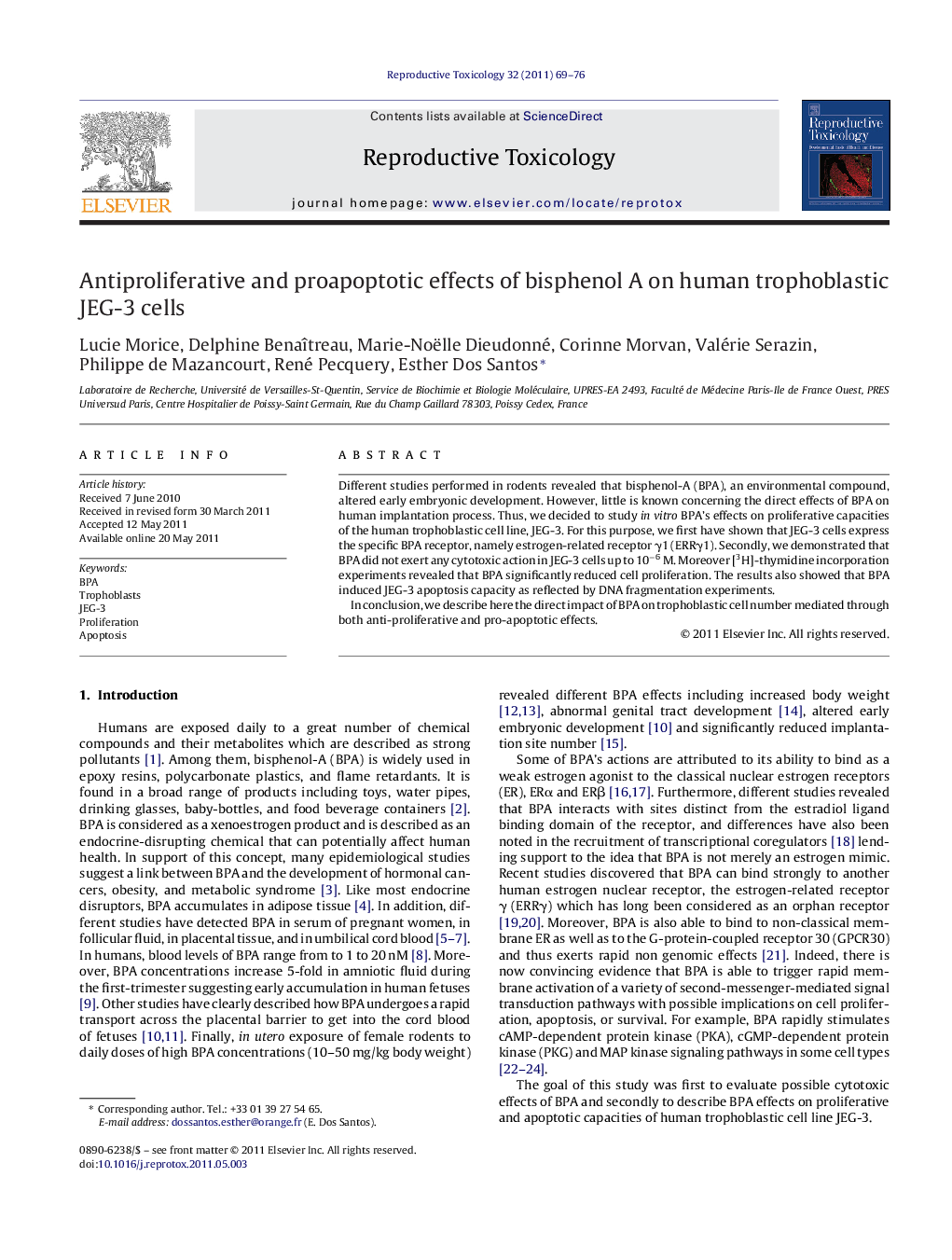| Article ID | Journal | Published Year | Pages | File Type |
|---|---|---|---|---|
| 2594529 | Reproductive Toxicology | 2011 | 8 Pages |
Different studies performed in rodents revealed that bisphenol-A (BPA), an environmental compound, altered early embryonic development. However, little is known concerning the direct effects of BPA on human implantation process. Thus, we decided to study in vitro BPA's effects on proliferative capacities of the human trophoblastic cell line, JEG-3. For this purpose, we first have shown that JEG-3 cells express the specific BPA receptor, namely estrogen-related receptor γ1 (ERRγ1). Secondly, we demonstrated that BPA did not exert any cytotoxic action in JEG-3 cells up to 10−6 M. Moreover [3H]-thymidine incorporation experiments revealed that BPA significantly reduced cell proliferation. The results also showed that BPA induced JEG-3 apoptosis capacity as reflected by DNA fragmentation experiments.In conclusion, we describe here the direct impact of BPA on trophoblastic cell number mediated through both anti-proliferative and pro-apoptotic effects.
